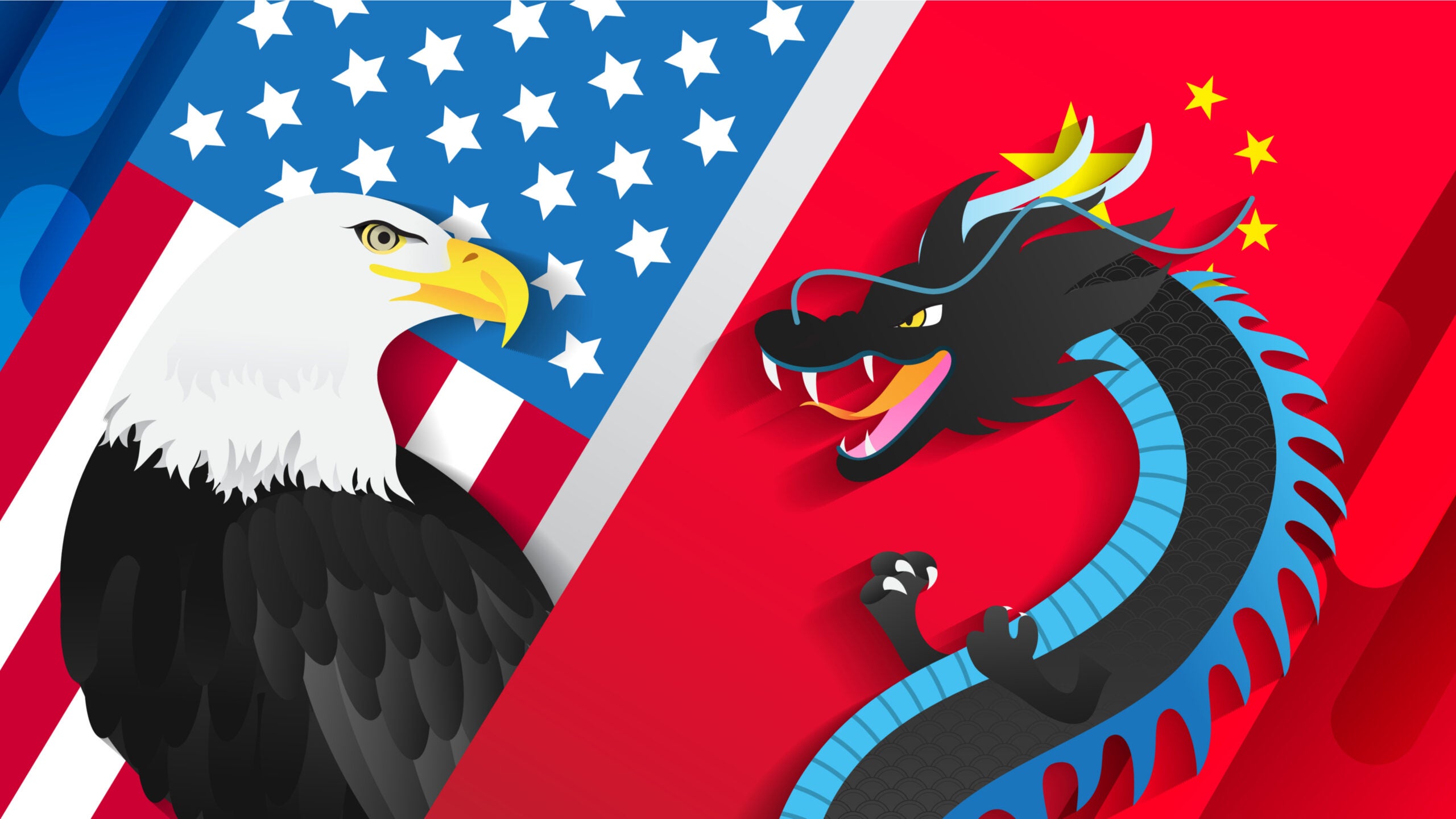
As the tech trade war between China and the US continues, both sides are rolling out new laws to protect national data. The Cyberspace Administration of China (CAC), the country’s main internet watchdog, proposed draft rules making it more difficult for domestic data to be transferred abroad. In the US, lawmakers passed a bill that would prevent Chinese telecommunications companies such as Huawei and ZTE from receiving new equipment licences.
On Friday, the CAC released a set of draft rules titled “Measures for Security Evaluation for Outbound Data,” calling for additional requirements for businesses wanting to transfer Chinese data abroad. The new rules may have a significant impact on the overseas listings of Chinese companies, as well as the day-to-day operations of multinationals in China.
According to the document, any business that gathers data in China will need to conduct a self-review on the risks involved in transferring that data outside Chinese borders. A wide scope of data transfers will be subject to government scrutiny.
In July, the CAC introduced a draft proposal that requires companies that hold personal data of over one million users to go through additional cybersecurity reviews before listing abroad. In the latest document, a government review will become mandatory for such companies before moving data across the border.
Data involving more than 100,000 individuals or personal information that is deemed “sensitive” of more than 10,000 people will also have to go through the same government review process.
This could significantly impact international companies that operate in China wanting to send consumer data back to foreign headquarters, as they now have to get government approval.
How well do you really know your competitors?
Access the most comprehensive Company Profiles on the market, powered by GlobalData. Save hours of research. Gain competitive edge.

Thank you!
Your download email will arrive shortly
Not ready to buy yet? Download a free sample
We are confident about the unique quality of our Company Profiles. However, we want you to make the most beneficial decision for your business, so we offer a free sample that you can download by submitting the below form
By GlobalDataAcross the Pacific
Meanwhile, in the US, the Senate voted unanimously to approve the Secure Equipment Act on Thursday. The law will ban companies deemed as security threats, such as Huawei and ZTE, from receiving new equipment licenses.
The bill – the US’ latest move to crack down on Chinese telecommunications companies – was introduced in the US House of Representatives last week, where it passed on a 420-4 vote. It has now been handed to President Joe Biden for his signature.
“Chinese state-directed companies like Huawei and ZTE are known national security threats and have no place in our telecommunications network,” said Republican Senator Marco Rubio.
The rule would prohibit the Federal Communications Commission (FCC) from reviewing or issuing new equipment licences to companies on the FCC’s “Covered Equipment or Services List”.
In March, the FCC said that five Chinese companies posed a threat to US national security under a 2019 law passed by the Trump administration. The affected companies include Huawei and ZTE, as well as Hytera Communications, Hangzhou Hikvision and Zhejiang Dahua Technology.
Earlier this week, the US communications watchdog voted to revoke the authorisation of China Telecom Americas to operate in the US. The subsidiary of China Telecom, the country’s largest telecommunications company, was given 60 days to terminate its operations in the US.
The princess of Huawei
Huawei has been one of the most hotly contested companies amid China’s standoff with the US. On Tuesday, the company’s CFO, Meng Wanzhou, who is also the CEO’s daughter, went back to work after returning from Canada following the termination of her three-year extradition trial.
Meng, also known in China as the Princess of Huawei, was arrested in Canada in 2018 on a US warrant for allegedly misleading HSBC about Huawei’s business dealings in Iran. Her arrest has become a symbol of the tensions between the US and China.
On Monday, upon her arrival back at Huawei’s headquarters in Shenzhen, she was welcomed by a crowd of employees and fans who celebrated her return.
In a speech Meng said: “In the past three years, although thousands of miles have separated us, we have been in the same boat, and our sincerity has never gone far. In the past three years, although day and night have been reversed, we have worked hard together, and our friendship has grown deeper. In the past three years, although we have struggled, we have overcome obstacles, and the team has become more and more courageous. “
“There is no mountain that is insurmountable and no ocean that can’t be crossed. This is our unchanging belief. Thank you for waiting and thank you to the company,” she added.
Small island, big stakes
As the battle for tech supremacy between the US and China continues, one small yet crucial island has been at the centre of attention: Taiwan.
The island in the East China Sea, formally known as the Republic of China, has been in the hot seat in recent months, with the looming threat of a Chinese attack becoming more imminent each day.
Taiwan is on the “front lines” in the fight for democracy, said President Tsai Ing-wen on Thursday. On the same day, China once again reiterated that Taiwan has “no right” to join the United Nations after the US voiced support for the island’s “meaningful participation” in the international organisation.
Tensions between the two superpowers have been at the highest point in decades. “The full force of the US apparatus is now aimed at China,” Paul Schulte, a former US National Security Council analyst, told Nikkei Asia recently. “The war on terror is over. The war on China has started. The systems will be unplugged one by one.”
US President Biden recently said that the US would defend Taiwan should China launch an attack. On Friday, Washington’s top diplomat in Taipei doubled down while addressing global chip supply chain concerns.
Sandra Oudkirk, director of the American Institute in Taiwan and the US’ de facto ambassador on the island, said that the US “will continue to work together to ensure that supply chains remain safe and secure.”
The remarks were meant to ease the tensions concerning the US Commerce Department’s latest request to international semiconductor companies to submit details about their supply chains.
Incidentally, the world’s largest chipmaker, Taiwan Semiconductor Manufacturing Company, is located on the island. Following the US’ request, the company expressed dismay, worrying that it may result in the leakage of sensitive data.
Oudkirk’s speech on Friday sought to ease such concerns, saying she has met with local industry leaders and government officials to explain the reason for the request. The Commerce Department “has excellent safeguards on proprietary information,” she assured.
Update
On November 11, US President Joe Biden signed legislation to prevent companies like Huawei and ZTE, deemed a threat to national security, from receiving new equipment licenses from US regulators. .





